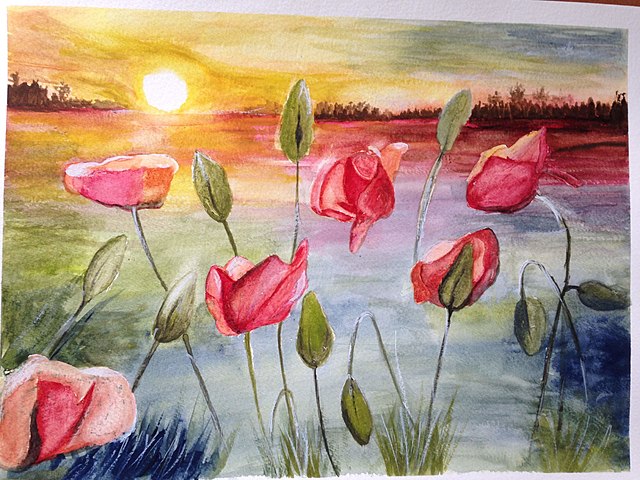
Romantic Literature For Valentine’s Day
Valentine’s Day has long been associated with heart-shaped chocolate boxes and red roses, yet some of the greatest love stories of all time were born of pen and paper. These are just some of the dazzling classic romances that you can get lost in this Valentine’s Day.
‘You Pierce my soul. I am half-agony, half-hope.’
Persuasion, by Jane Austen (1818)
Described by Harold Bloom as ‘the perfect novel’, Persuasion tells the tale of 27-year-old Anne Elliot, who lives with her father, Sir Walter Elliott, a boorish Baronet. Eight years ago, after a whirlwind romance, Anne had become engaged to Frederick Wentworth, a navy officer. After being persuaded by her father and close friend Lady Russell that Wentworth lacked prospects, Anne called off the engagement – a decision that became the greatest regret of her life.
Eight years on, Wentworth – now Captain Wentworth – has returned, having amassed a fortune at sea. Whilst Persuasion lacks the charm of Pride and Prejudice and the wit of Emma, it makes up for this in pure heart and authenticity. At 27-years -old, Anne feels the monotony of her life more keenly than ever, and what more, she has given up her only chance to experience true love. Or has she? Persuasion’s brooding prose creates almost unbearable tension throughout the novel, making its glorious denouement all the more satisfying for readers.
Breakfast at Tiffany’s, by Truman Capote (1958)
‘I loved her enough to forget myself, my self-pitying despairs, and be content that something she thought happy was going to happen.’
From heart-stopping thrillers to classic romances, there wasn’t much that the great Truman Capote couldn’t turn his hand to. For most people, Breakfast at Tiffany’s is synonymous with the 1960s film, and the enigmatic screen presence of Audrey Hepburn. But Breakfast At Tiffany’s was first born as a novella. In the short story, a solitary writer’s life is turned upside down when a quick-witted young socialite, Holly Golightly, moves into the apartment below his. This book beautifully combines the allure and glamour of 1940s New York with the softer, more melancholy matter of the protagonists’ search for a sense of belonging and home.
Far From The Madding Crowd, by Thomas Hardy (1874)
‘I shall do one thing in this life — one thing certain —that is, love you, and long for you, and keep wanting you till I die.’
Hardy isn’t exactly known for spinning a cheerful yarn, but Far From the Madding Crowd is a pleasant departure from his usual oeuvre. Though that’s not to say the novel is not also brimming with jealousy, deceit and tragedy. The beautiful protagonist, Bathsheba Everdene, is in want of a fortune and ultimately finds herself running a farm inherited from her late uncle.
The bolshy Bathsheba has three suiters: a humble shepherd, Gabriel Oak, whose proposal she turned down, a farmer called Mr. Boldwood, who develops an obsession with her after she sends him a coy Valentine’s note, and Sergeant Troy, a maddening rogue. Bathsheba is an intriguing character – as a woman trying to make it in a world made for men, she eschews the role of the traditional Victorian woman in favour of trying to make her way in the world. There is lots of drama, angst and even bloodshed before Hardy gives us the happy ending, but when it arrives, it couldn’t be more perfect.
Gone With the Wind, by Margaret Mitchell (1936)
‘I’ll think of it all tomorrow, at Tara. I can stand it then. Tomorrow, I’ll think of some way to get him back. After all, tomorrow is another day.’
Mitchell’s Pulitzer Prize-winning novel is often hailed as one of the greatest love stories of all time. With the American Civil War providing a backdrop — and the themes of deprivation, abuse and race weaved throughout the novel — Gone With the Wind was never going to be an uncomplicated love story. Yet the headstrong, ever-optimistic protagonist, Scarlett O’Hara, embraces the messy parts of life, making a game of her love-triangle with Ashley Wilkes and Rhett Butler. Given O’Hara’s impulsive personality and reliance on ‘tomorrow,’ Gone With The Wind doesn’t neatly fit into the bildungsroman genre to which it is often subscribed. Yet it is O’ Hara’s spirited character that is the beating heart of the novel. Whilst her romantic affairs may be tumultuous, her pursuit of love, in the words of Alexander Pope, shows that ‘Hope Springs Eternal.’
The Winter’s Tale, by William Shakespeare (1623)
‘It is required. You do awake your faith.’
Leontes has a charmed life – he is the King of Sicily, has a dedicated wife, Hermione, and a lifelong best friend in Polixenes, The King of Bohemia. Yet, on the eve of Polixenes’ departure from Sicily, Leontes mistakes Hermione’s hospitality towards Polixenes for a flirtation and begins to suspect that he has been cuckolded by her. With echoes of Shakespeare’s earlier play, Othello, Leontes becomes consumed by a fit of nightmarish jealousy and hatred that threatens to destroy his relationship with Hermione and Polixenes. Although Leontes’ shares Othello’s wild imagination, unlike Othello, The Winter’s Tale is ultimately a play about the power of redemption to restore love. Leontes’ unbridled imagination and paranoia lead to the apparent death of his wife and banishment of his infant daughter, yet the play poses the question of whether the King can use the same imagination that drove them away to believe in the magic of redemption and renewal.
We are told at the beginning of the play that ‘A sad tale’s best for winter’ – but rather than being a sombre read, The Winter’s Tale is the perfect antidote to these cold winter nights, offering a lucid meditation on the power of storytelling, restoration, and love.
